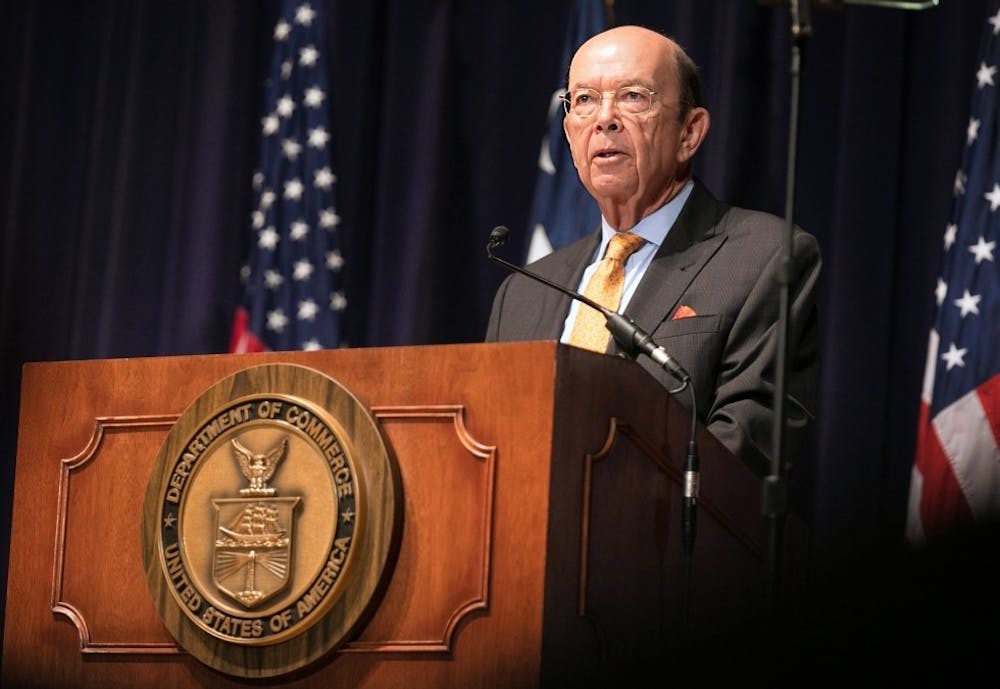In the United States, the census determines congressional representation, informs distributions of federal grants by the federal government and the states. It also helps businesses plan expansions, expenditures, advertising and new products. It is not only a political tool — it also a widely used for financial and social purposes. Its efficacy, however, is already partially compromised by the survey and statistical techniques used by the Census Bureau. Adding Commerce Secretary Wilbur Ross’ proposed citizenship question to the 2020 Decennial Census runs the risk of further reducing the usefulness of the data.
The treasure trove of data collected and released by the Census Bureau is important to both small-business owners and mega-corporations. After all, smart businesses market to and serve illegal immigrants just as they might serve citizens and legal immigrants. Data collection, like Amazon’s Web Services and Facebook advertising, have become increasingly valuable to the U.S. economy. The Census fills a role similar to those private operations but on a far wider — and therefore far more useful — scale. Producing accurate information as the Census does is essential to producing freer, more competitive markets. The loss in headcount, estimated to approach 6.5 million people by the Bureau’s internal calculation, would likely further exacerbate market information asymmetries.
Furthermore, the political and philosophical implications of the question are also worth investigating. Based on the Bureau’s estimation of reduction in census responses, urban areas may lose representation to more rural areas. From some people’s points of views, including my own, this may be for the better. However, it is unclear whether the Founding Fathers intended for representation to be solely based on the voting citizenry. Of course, under the Three-Fifths Compromise slaves who obviously could not vote were partially counted for the purpose of representation, showing little consideration by the Founders for voter-based apportionment.
On the other hand, the framers of the 14th Amendment did provide for representation to “be reduced in the proportion which the number of such male citizens [who have had their right to vote abridged] shall bear to the whole number of male citizens twenty-one years of age in such state.” Clearly, there is a mechanism and a constitutional requirement to factor in the voting population, as opposed to the general population, in congressional representation. However, context does matter in situations as different as suppressed voters and illegal immigrants. I counsel caution on taking measures that would damage the economy, inaccurately distribute federal funds and are based on dubious precedents.
It appears clear that throughout the history of the census, asking about citizenship was not controversial in census-taking and by extension congressional reapportionment. Historically, the foreign-born percentage of the population was higher in the late 1800s and early 1900s than in 2010. According to the Department of Justice, citizenship data is “critical” in the enforcement of the Voting Rights Act. The voting rights of minorities were undoubtedly less of a concern in the 19th century, but for every administration since 1950 — the last year in which a citizenship question was asked — adding the question back to the census for the sake of the Voting Rights Act was not a priority.
Overall, the federal government ought to leave good enough alone, especially on the fairly mundane Decennial Census. Turning the regular and generally non-controversial process into an ideologically divided Supreme Court case is irresponsible and distracts from the real business of governing. The practical issues surrounding the expected drop in responses are meaningful beyond the political realm.
The Center on Budget and Policy Priorities calculates the census would cost at least $27.5 million more as a result of the addition. The Association of State and Territorial Health Officials believes the inaccuracies associated with the question will hinder public health initiatives. Privacy advocates like myself should believe that each additional question on the census is another encroachment on privacy that is an even larger threat than Big Data. Misallocation of federal funds will have reverberating effects on national economic growth. Areas such as southern California or northern Virginia with many illegal immigrants will receive less federal funding but are still large sources of GDP gains. Dollars spent in those areas would likely drive development further than dollars spent in many already well-developed, high citizen-concentration areas.
The case to not add the question is expansive and supported by conservatives and liberals alike. To add the question would be to ignore good sense and needlessly complicate the workings of the federal government.
Bilge Batsukh is an Opinion Columnist for The Cavalier Daily. He can be reached at opinion@cavalierdaily.com.







